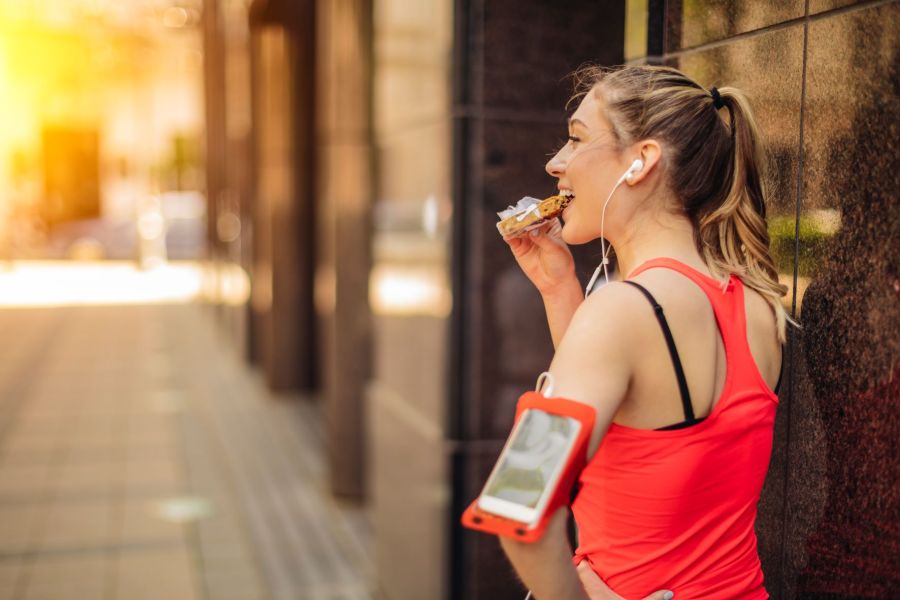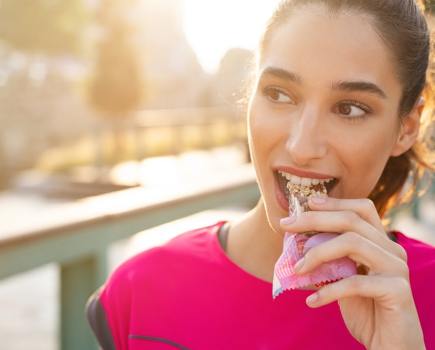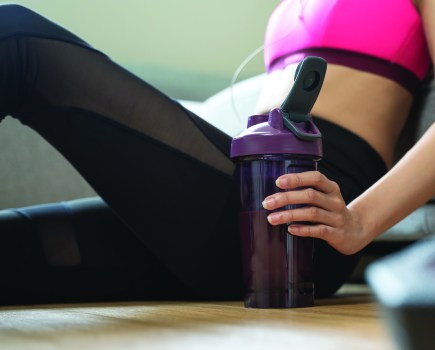Confused about your carbohydrate needs as a runner? Nutritionist Christine Bailey reveals the best carbs for runners and when you should be eating them to effectively fuel your training…
Words: Christine Bailey | Images: Shutterstock
Carbohydrates tend to get a bad rap these days, but if you’re a runner it’s important that you don’t overlook the importance of eating enough carbs. They not only fuel your runs but also replace muscle glycogen (one of the compounds your body breaks carbohydrates into) after training. Stored mainly in the liver and muscles, glycogen is a primary energy source for intense and prolonged exercise. Keeping your liver and muscles full of glycogen can dramatically improve your runs, and that requires getting sufficient carbohydrate from your diet.
An added bonus when you eat carbohydrate is that you raise levels of the hormone insulin. This has a powerful anti-catabolic (breakdown-reducing) action, reducing the effects of cortisol and meaning it decreases the rate at which muscle proteins are broken down – this aids muscle recovery and growth. That is why carbohydrates after running or exercise can be so beneficial – they help restore the used glycogen and aid recovery. As your glycogen stores are limited, getting a regular supply of carbohydrate, particularly around your runs, can be helpful.
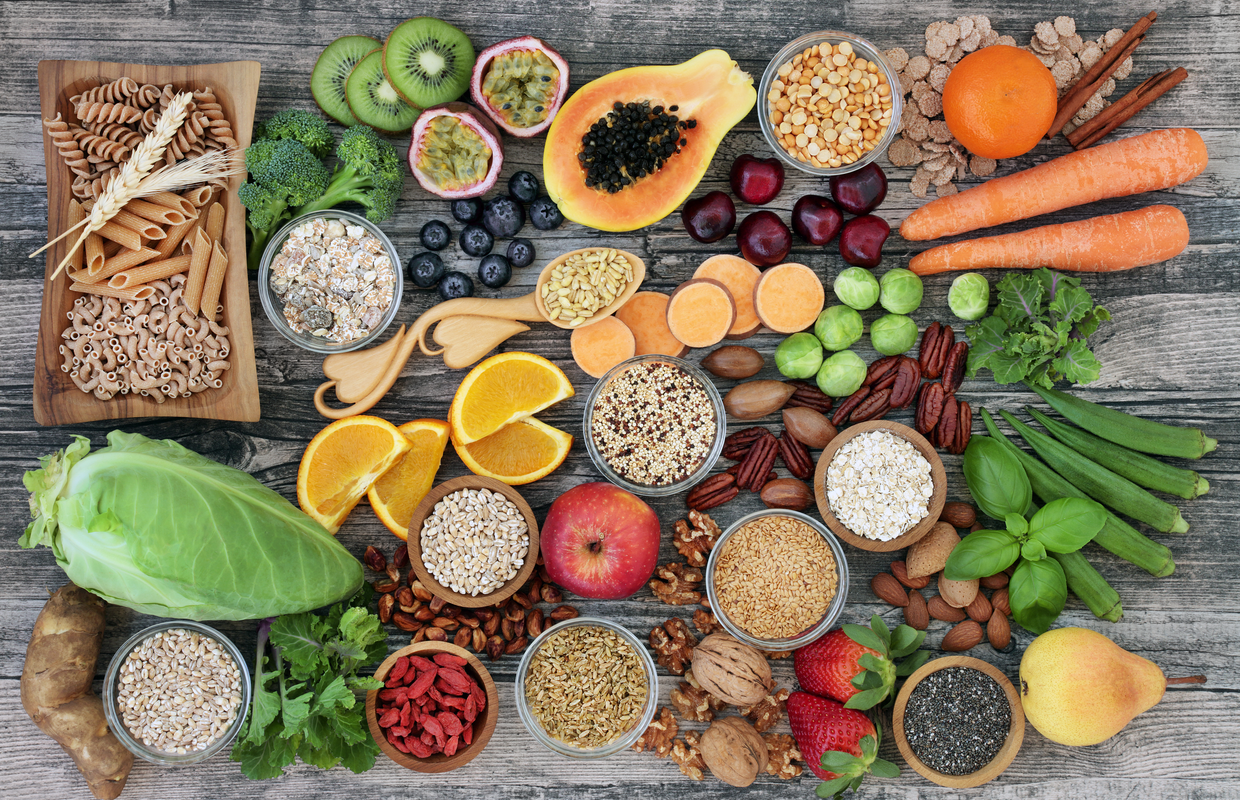
What are the best carbs for runners to eat?
Carbohydrates are found in a wide range of foods including fruits, vegetables, wholegrains, beans, pulses and some dairy. Some of these are faster-releasing carbohydrates than others. Typically, runners should choose faster-releasing and lower-fibre carbs such as a banana, yoghurt or fruit smoothie before training, as these are the best choices for refueling your body effectively and avoiding digestive upsets. Select slower-releasing carbohydrates (vegetables, wholegrains, beans, pulses) during the main part of the day as these foods will keep your energy levels more balanced, avoiding crashes in energy levels.
Many runners overlook vegetables, especially starchy vegetables (pumpkin, sweet potato, beetroot, parsnips), as a useful carbohydrate source. They are packed with antioxidants to protect against free radical damage, as well as B vitamins and magnesium which are essential for energy production. Starchy vegetables are also easy to digest, which may help you to avoid tummy troubles, particularly around your runs.
How many carbs does a runner need per day?
The amount of carbs you need to eat will depend on the volume and intensity of running and training you do. Aim to get around 40-50 per cent of your daily calories from carbohydrate foods. The table (below) provides a good guide as to how many carbs you’ll need per day as a runner, but remember that everyone is different.
At each meal, focus on ensuring that half of your plate is made up of vegetables. Add a serving of grains or starchy veg, plus always include some protein to help reduce insulin spikes and support muscle recovery. If you are running three-to-five hours each week, your intake of carbs is roughly 4g per kilogram of bodyweight. So, if you weigh 9 stone (57kg) this would be around 228g of carbohydrate.
This could easily be obtained by eating a bowl of porridge and raisins for breakfast, a banana with yoghurt before training and a chocolate milk shake or fruit protein shake after training. Then, eat a baked potato with plenty of vegetables as part of a meal later in the day, with some fruit.
| Hours of running | Estimated daily carbohydrate need (grams per kilogram of bodyweight) |
| 3-5 per week | 4g |
| 5-7 per week | 5-6g |
| 1-2 hours per day | 6-7g |
| 2-4 hours per day | 7-8g |
| 4+ hours per day | 8-10g |
When should I eat carbohydrates as a runner?
When you eat your carbohydrate fuel is just as important as the meal composition when you’re a runner. The timing of eating will also be influenced by the timing of your run (early morning, lunchtime, etc. ) and how long it is. For many people, running first thing on an empty stomach works well and avoids any digestive issues. But if your runs are longer than 60 minutes, you may need to take in carbs beforehand for fueling yourself. Here are some general guidelines:
Carbohydrates one hour before a run:
While your needs will vary depending on the length of your run, try to eat 30-60 minutes before you set off, and aim for around 15-25g carbohydrate. The best carbs for runners are those low in fat and fibre. A little protein is a valuable way to boost your staying power during a longer run, and can help stabilise blood sugar. If any amount of food upsets you, try a smoothie or liquid drink.
Carbohydrates immediately after running:
Aim to eat 20-30g of easy-to-digest carbohydrate food plus some protein within 30-45 minutes of your run. For ease, this could be fruit (such as a cup of berries) with a protein shake, a chocolate milkshake or a post-workout recovery drink. This will help to quickly restore glycogen levels and support your recovery. If you are training before a meal such as breakfast or lunch, then you can skip this snack and just eat a healthy meal instead.
Carbohydrates one-to-two hours after running:
Depending on the length of your run, follow it with a meal or snack that combines protein (chicken, fish, eggs, etc.) with liberal quantities of vegetables and starchy vegetables like carrots, parsnips, squash, potatoes and sweet potatoes.
Carbohydrate intake later after running:
Later throughout the day you may need snacks such as oat cakes to keep carbohydrate stores at optimum levels. Aim to combine carbs with protein to support muscle mass and stabilise blood sugar.
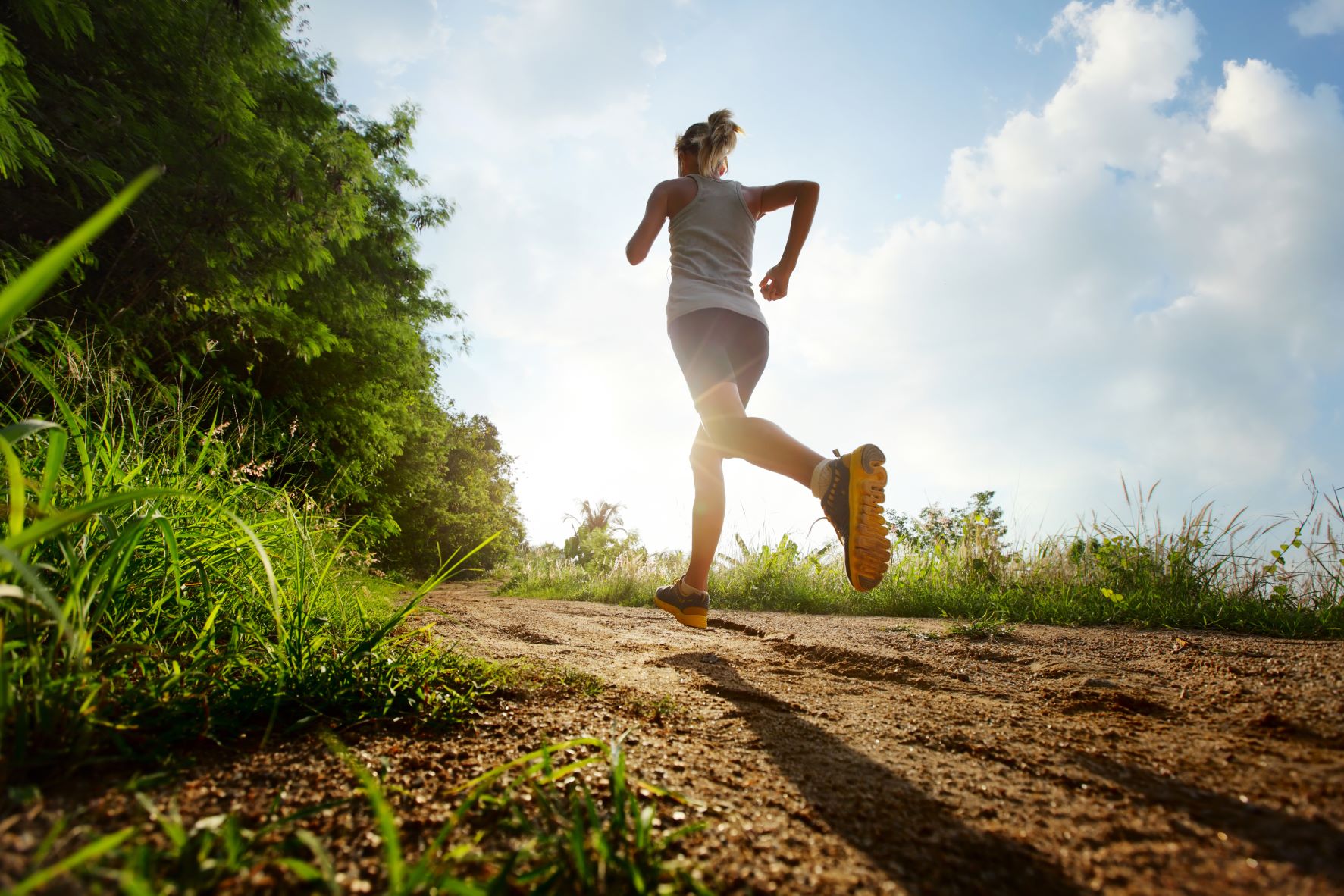
Do carbohydrates make you gain weight?
Low-carb dieting has become one of the go-to solutions for weight loss. While it maybe useful for some people, particularly those who are very overweight or suffer with insulin resistance, it is not a magic bullet for weight loss. How you manage your overall energy balance over time is far more important.
In addition, ensuring sufficient protein (which supports muscle mass) is equally vital. For runners looking to lose weight, calculate your calorie target for weight loss (there are many calorie calculators online to try) and set your carbs to at least 40 per cent of your total calories. Work out your protein requirements (aim for at least 1.4-1.6g protein per kilogram of body weight, or around 25-30 per cent of total calories) and the rest will be healthy fats. If you are in a calorie deficit you can still eat carbohydrates and lose weight.
How to fuel yourself with carbohydrates during runs
If you are only running for 30-60 minutes, you really don’t need any carbohydrate during your run. In general, runners will need to add in 30-to-60g of carbs each hour they are running longer than 75 minutes. You should also start fuelling earlier than 75 minutes into a run to avoid energy dips.
Ideally, take on 30g of carbs (roughly one energy gel) every 45 minutes of your longer run. Your fuel could include energy gels or chews, drinks or a few Jelly Beans. Be sure to follow your fuel with water. Your stomach can only tolerate a certain amount of carbohydrate, so you need to dilute your fuel for it to go into circulation and to avoid stomach cramps.
If you opt for real food, choose those rich in easily digestible carbohydrates. Practise fuelling on your long runs before you try it in a race. This will give you a chance to see which types of fuel work for you. If you’re finishing your long runs feeling completely shattered, you need to take on more fuel next time.
Runner’s carbohydrate meal plan
This example meal plan features some great carbs for runners to best fuel a lunch-time run…
- On waking: Glass of coconut water
- Breakfast: Bowl of porridge, berries and Greek yoghurt, coffee or green tea
- Pre-run snack: 1 banana, plus coconut water or beetroot shot
- Post-run lunch: Chicken salad with baked sweet potato. Apple slices with nut butter
- Afternoon snack: Protein bar or oat cakes with hummus
- Dinner: Vegetable stir-fry with tofu and buckwheat noodles, 2 squares dark chocolate.

